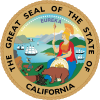This article needs to be updated. The reason given is: The information is accurate but obsolete. In 2020, AB 5 was extensively revised and reintroduced as AB 2257. That bill was written into California law, i.e., codified, late in the year. (February 2021) |
| California Assembly Bill 5 (2019) | |
|---|---|
 | |
| California State Legislature | |
| Full name | An act to amend Section 3351 of, and to add Section 2750.3 to, the Labor Code, and to amend Sections 606.5 and 621 of the Unemployment Insurance Code, relating to employment, and making an appropriation therefor |
| Introduced | 2018-12-03 |
| Assembly voted | 2019-09-11 (56–15) |
| Senate voted | 2019-09-10 (29–11) |
| Signed into law | 2019-09-18 |
| Governor | Governor Gavin Newsom |
| Code | Labor Code and Unemployment Insurance Code |
| Section | 3351, 2750.3, 606.5, 621 |
| Resolution | AB 5 |
| Website | Full text of the bill |
Status: Current legislation | |
California Assembly Bill 5 or AB 5 is a state statute that expands a landmark Supreme Court of California case from 2018, Dynamex Operations West, Inc. v. Superior Court ("Dynamex").[1] In that case, the court held that most wage-earning workers are employees and ought to be classified as such, and that the burden of proof for classifying individuals as independent contractors belongs to the hiring entity. AB 5 extends that decision to all workers. It entitles them to be classified as employees with the usual labor protections, such as minimum wage laws, sick leave, and unemployment and workers' compensation benefits, which do not apply to independent contractors.[2] Concerns over employee misclassification, especially in the gig economy, drove support for the bill, but it remains divisive.[3]
The law codifies and expands the scope of the so-called "ABC test", established in the Dynamex ruling. That test states that a worker must be classified as an employee, and not a contractor, unless the employment meets all of the following conditions: (A) the individual operates free from the company’s direction and control, both in the contract and in reality; (B) the service is performed outside the usual course of business of the employer; and (C) the individual is customarily engaged in an independently established trade, occupation, profession, or business of the same nature as that involved in the service performed.[2]: 1 [4][5]
In response to the passage of AB 5, many industries began to lobby for exemptions. Approximately 100 professions were specifically exempted from AB5; generally being professions seen to directly work with and set their own prices to customers.
The ridesharing companies Uber and Lyft both lobbied heavily against passage of the bill, and after it was passed they lobbied unsuccessfully to get the California legislature to exempt ridesharing from the bill. They (along with food delivery company DoorDash) also refused, after the bill's passage, to reclassify their drivers as employees.[6][7] The three companies, now also joined by Instacart and Postmates, funded a ballot initiative, Proposition 22, to exempt both ridesharing and delivery companies from the AB 5 requirements, while also giving drivers some new protections, including minimum wage and per-mile expense reimbursement. Proposition 22 passed in November 2020 with 59% of the vote.[8][9]
- ^ Dynamex Operations West Inc. v. Superior Court of Los Angeles, (2018) 4 Cal. 5th 903 (Cal. Sup. Ct. April 30, 2018).
- ^ a b Myers, John; Bhuiyan, Johana; Roosevelt, Margot (2019-09-18). "Newsom signs bill rewriting California employment law, limiting use of independent contractors". Los Angeles Times. Archived from the original on 2019-09-24. Retrieved 2019-09-18.
But while the legislation began as a way to formalize the 2018 court ruling, it quickly became the focus of a high-stakes lobbying effort over which kinds of jobs and industries deserved exemption from the new rules. Doctors, accountants, architects, real estate agents, travel agents, graphic designers and investment advisors — along with many other professions — will not be subject to the strict employee rules under the new law. Other exemptions come with conditions. Commercial fishermen are exempt except from unemployment insurance. Barbers, cosmetologists and manicurists are exempt only if they set their own rates, are paid directly by clients and schedule their own appointments. Salespeople are exempt, provided their pay is based on actual sales rather than wholesale purchases or referrals.
- ^ Siddiqui, Faiz (2019-09-11). "California Senate passes ride-hail bill that has divided Democrats over the future of Uber and Lyft drivers". Washington Post. Retrieved 2020-01-17.
- ^ Margolin, Joelle (March 11, 2020). "AB 5 in California: A New Era for Independent Contractors and Freelance Workers". Woodruff Sawyer. Retrieved 21 September 2020.
- ^ "Uber and Lyft Fight a Law They Say Doesn't Apply to Them - The ride-hail companies are backing a ballot measure to overturn a California law intended to transform gig-economy workers from contractors to employees". Wired. 31 October 2019. Archived from the original on 2019-11-06. Retrieved 2020-10-14.
AB 5 codifies a 2018 California Supreme Court decision that established a three-part test to determine who is an employee and who is an independent contractor. Under the new law, workers can be classified as independent contractors only if they're not under the control or direction of the company while working; if their work is "outside the usual course" of the company's business; and if they are usually doing the same kind of work they do for that company anyway.
- ^ O'Brien, Sara Ashley. "Uber claims new California law still won't force it to classify drivers as employees". CNN. Retrieved 2019-09-12.
- ^ Ghaffary, Shirin (2019-09-11). "Uber and Lyft say they don't plan to reclassify their drivers as employees". Vox. Retrieved 2019-09-12.
- ^ "California Proposition 22, App-Based Drivers as Contractors and Labor Policies Initiative (2020)". Ballotpedia. Retrieved 2020-07-25.
- ^ Conger, Kate (2019-08-29). "Uber, Lyft and DoorDash Pledge $90 Million to Fight Driver Legislation in California". The New York Times. ISSN 0362-4331. Retrieved 2019-09-12.